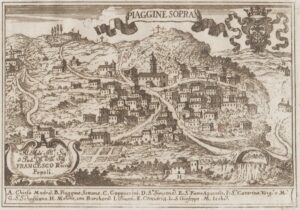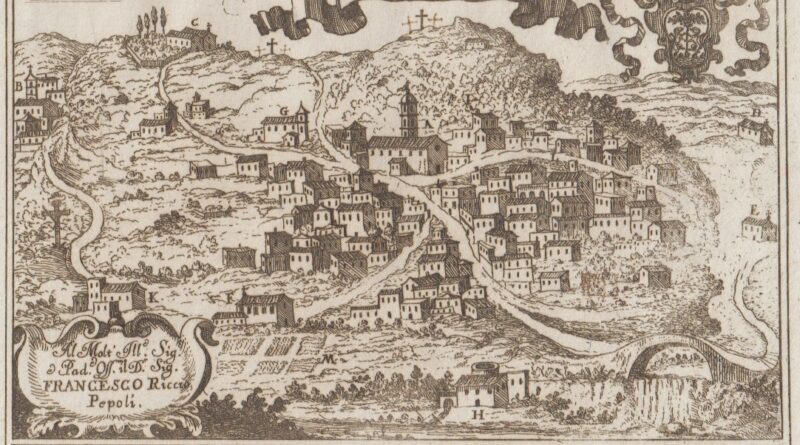Understanding Research Environment in Italy: Factors Affecting Genealogical Investigations

What factors might have an effect – positive or negative – on your Italian family history project? Based on decades of experience in Italy, these observations relate to factors that are not directly connected with Italian genealogy but instead involve various cultural differences that affect access, documentation and research progress. Research carried out with Italian records (such as microfilms) outside Italy does not allow the researcher to be directly exposed to these elements. Researchers dealing directly with those responsible for Italian records held in Italy may face numerous difficulties during their investigation, including issues like access negotiations and delays caused by civil or church officials who remain disinterested or passive towards these records.
Due to the unique challenges experienced by Italian genealogists, sometimes it becomes necessary for them to advise clients about such matters. Ofttimes, an English-speaking Italian descendant conducting Italian genealogical research is unaware of how state bureaucracy, government offices, and Roman Catholic church function in Italy. These Italian institutions differ considerably from their counterparts in North America, Australia or even Britain. Italy may give off the impression of being like any other state thanks to rapid travel, fax machines, the internet and CNN; however, popular culture may lead one to believe otherwise. Regardless of popular belief and media portrayals to the contrary. An individual visiting Italy who explores beyond business suites or tourist trails will encounter various cultural differences that can impact genealogical research projects. Here are two everyday examples that demonstrate these disparities aren’t limited to research procedures alone. Italians traditionally approach tasks linearly, seeking to complete one activity before beginning another. This differs from American and British approaches whereby someone might simultaneously pursue multiple activities until each is ultimately complete. At an Italian clothing store, a clerk might tend to the needs of the first customer who enters, even as another individual requires assistance in fitting. While an English clerk might pause in their initial task to ascertain the needs of another customer who arrived later, an Italian clerk might consider it rude to interrupt what is already underway just so another may get served more promptly. As a result, both customers may need to wait.
Managers working in their office on Friday may postpone answering Thursday’s correspondence while prioritizing Tuesday’s, giving each equal weight based on time of arrival as against actual importance. This approach can be especially frustrating in regard to postal deliveries in Italy which are notoriously unreliable.
Assuming you have traveled to Rome or Florence as a casual visitor, and are operating under more “American” guidelines for scheduling, you might not encounter attitudes such as those described above; international corporations based there might have adopted more Americanized strategies; but genealogical research typically takes place not within tourist or commercial environments, but within state archives, small town vital statistics offices or old parish churches where traditional attitudes remain.
Two customs may seem particularly foreign to people from outside Italy. One method involves offering funds as compensation for favors that are solely unofficial, such as accessing a private archive; Catholic parochial archives typically count as “private,” so in return for providing access to them a discreet but generous offering is usually made. Recommending someone can also help expedite an official’s assistance; both customs are often required of aged Southern pastors while state archives might find such gestures offensive. This is not “bribery” or nepotism; in fact both practices date back to medieval churches patronized by local aristocratic families in parochial churches. Clientis invoices typically include notations such as “offering to facilitate parochial archival access” as part of expenses section for such practices, which some perceive as corrupt; similarly, Italians view certain American practices which seem dubious as “corrupt” to Europeans- large political campaign donations and high university tuition costs are examples of such practices which tend to cause suspicion from foreigners.
Before discussing certain specific cases, it should be mentioned that church and state (governmental) entities in Italy do not engage in genealogical research – that simply isn’t their area of responsibility. Genealogist are not required to assist their efforts and give access to records; in general they do not share the genealogistis zeal for discovering historical information. Success in this field depends heavily on whether the individuals responsible for managing relevant archival materials cooperate. Bewildered by an increase in foreign interest in Italian genealogical information and overwhelmed with requests for free assistance, more and more clerical and civil officials have become less cooperative, though one must remember they may have more pressing demands on their time – municipal offices are understaffed, priest shortages exist across Italy – even scheduling an appointment can often prove challenging.
While other countries have strict censorship measures in place to control what people can watch online, many states in America still allow unrestricted streaming of movies and shows online – offering viewers a much richer viewing experience. Postal Requests for Certificates
Vital statistics officials or pastors typically respond quickly when presented with specific names and dates of baptisms, births, marriages or deaths made through mail requests for one or two certificates related to baptism, birh or marriage ceremonies. In other cases, repeated requests or phone queries may be necessary before receiving a response – one reason professional genealogists charge what may seem like inflated rates for their services. Contrary to what some “professional” genealogists may imply, neither an overworked vital statistics official nor a busy pastor is legally obliged to respond to such a request from third parties seeking information about individuals still alive. Indeed, privacy laws prevent vital statistics officials from answering such queries related to persons still living.
Parochial Archives
In some instances, parochial archives contain information that could aid with the advancement of lineages into the 1400s; civil (vital statistics) records in Italy only date back to early 1800s while census records only provide limited secondary details. Pastors may allow direct access to their parish archives; however, this isn’t mandatory; oftentimes requiring approval by their bishop first before permitting a genealogist archival consultation. Even then, however, they might not allow the researcher to access registers directly. Italy contains more dioceses than provinces; therefore bishops exercise final authority over parishes within their diocesan jurisdictions. Most archive records cannot be microfilmed by either the LDS Church (Mormons) or Italian state, leaving no other source for accessing them. As per an order issued by the Catholic Conference of Italian Bishops a few years ago, Mormons are generally not granted access to Catholic parochial records in Italy for religious reasons. Establishing access to parochial archives can be both time consuming and complex, and may depend upon a pastorian’s past experiences with discourteous amateur researchers. Sometimes it can take months before a diocesan bishop grants access for research purposes. Due to limited records available elsewhere for projects dating prior to 1800, completion may experience considerable and frustrating delays. Parochial records often serve as the only source for certain information necessary.
Photocopies and Certificates
Genealogists often obtain photocopies of source documents. Unfortunately, pastors or officials may restrict photocopying and are sometimes unwilling to issue certificates in response to numerous “proofs” requested of acts and dates. Photocopiers are sometimes unavailable and could lead to the destruction of valuable records; photography with digital cameras and photocopying with portable scanner-copiers might not be allowed; increasingly genealogists provide page and reference numbers instead of certificates or photocopies as evidence of acts and dates.
Time
A genealogical research project undertaken in Italy poses its greatest difficulty due to time. When records exist, extensive lineages can be discovered; yet bureaucratic delays affecting genealogical matters can prove frustrating even under ideal conditions; patience must therefore be shown as being key when undertaking such endeavors.
